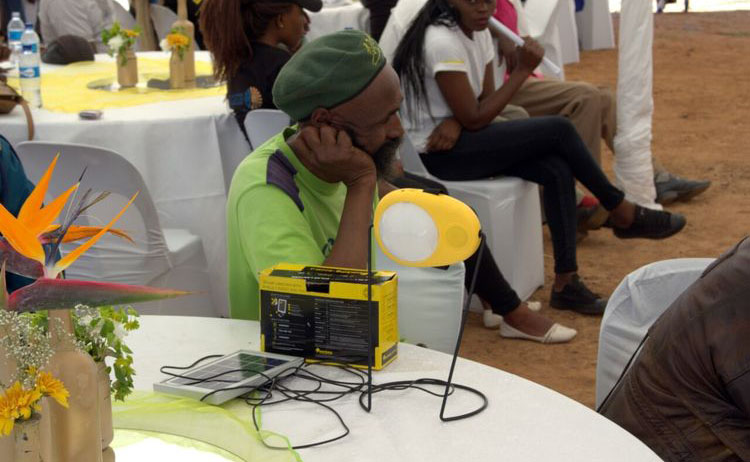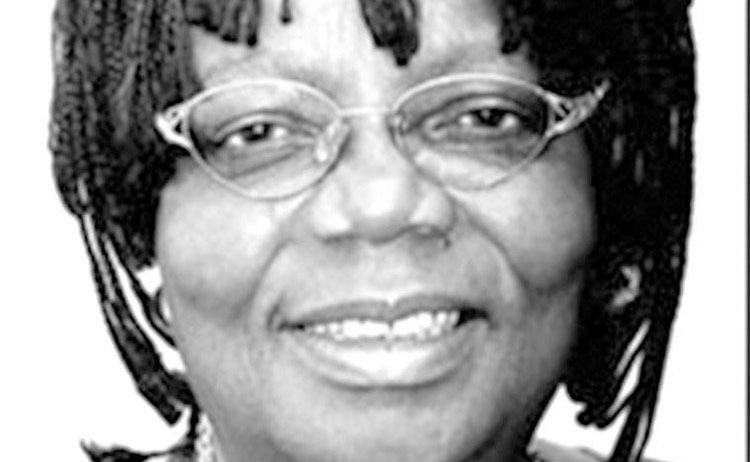Solar energy lights up Mhondoro-Ngezi


A villager listens attentively while sitting next to his Boom Three-In-One Solar system which has a radio, MP3 player, phone charging system and lights
Talent Gore Features Writer
Sun-bleached brick and concrete houses dot the landscape, while cows and goats compete with people on the only road in the village.
And when the sun sets, life comes to a screeching halt!
In other words, this rural village in Zimbabwe’s northern plains is an unlikely place for the beginning of a technological revolution.
Yet it is here, as employees from one of the country’s many fast-growing clean energy start-ups install solar panels on a local villager’s roof, that transformation is realised.
It is a glimpse into the future of how the world’s rural poor could access electricity: off-grid, distributed, renewable, and most importantly, affordable.
It’s happening in Mhondoro-Ngezi District and it is turning the entire narrative around energy and development on its head.
One of the villagers, Mr Shepherd Chakanyuka, said solar power is certainly a blessing in disguise for the villagers.
“When rural, isolated communities do gain access to solar power, the impact on residents can be profound,” he said. “Children are more likely to go to and complete schooling because they have light to study by.”
The solar systems have environmental benefits that encourage sustainable development using renewable resources energy sources.
“Kerosene (paraffin) lamps, which create a lot of indoor air pollution, are no longer needed, improving people’s health,” said Mr Chakanyuka. “And work hours are increased, giving people more time to earn money or build home-based businesses.”
Another villager Mrs Edna Chikoto said due to climate change, solar energy was the way to go because it was eco-friendly.
“By going to solar, you are already saving power from the national grid which can be freed for other use’s including industry,” she said.
“Solar usage is now the trend the world over, but mainly by using solar you will be in control of your power usage.”
Mrs Chikoto was happy with the project since it brought lighting to the people at a minimal cost and can be used to power lights, irons, refrigerators and solar powered pumps.
The villagers are part of the 300 000 rural households who are benefiting from a $4 million facility aimed at eliminating use of non-renewable energy sources.
The project roll-out will start with an initial 24 000 households in Mhondoro-Ngezi, before it spreads to other districts of Mashonaland West Province and, subsequently, the whole country.
It is a partnership between Mhondoro-Ngezi Rural District Council, Zonful Energy and other partners.
The project is modelled around the prepaid system, and is set to complement the rural electrification programme and bridge the energy gap between rural and urban communities.
Villagers will get an entry level package of lamps and cellphone charging system, a television set and a radio set for a deposit of $5, with the remainder payable over a maximum of 36 months.
Zonful Energy secured a $4 million loan from Kiva International to roll out cheap solar lighting systems to rural communities.
The entry level unit costs about $54 and a centrally controlled prepaid system will subsist until the unit is paid for in full.
Thereafter, the prepaid system will be removed and the unit becomes the owner’s, with a five-year warranty.
An upgrade will be made to the system after assessment of a customer’s adherence to agreed terms.
Zonful Energy chief executive William Ponelo said the success of the product would determine how it would be expanded to other areas in Zimbabwe.
“This product is in sync with our vision which states that we want to be the best district to live in by 2019,” he said. “We expect the product to give energy to our rural populace. It will provide lights, television, iron and refrigeration.”
He added: “We are solving energy challenges in rural communities by providing affordable solar systems, while also helping to conserve the environment.
“This will also help create employment as most of the people who do installations and basic repairs will come from the community.”
According to Zonful Energy, Zimbabwe has 8,25 million people living off-grid and depend on paraffin and firewood for energy.
Those connected to the national power grid typically suffer erratic supplies.
Mashonaland West Provincial Affairs Minister Faber Chidarikire said the overall objective of the project was to contribute to the attainment of sustainable energy goal.
The goal aims at ensuring universal access to modern energy services in rural areas to improve the well-being of rural people.
“Energy is the key enabler for the creation and promotion of millions of jobs which will ensure that the visionary growth of the $100 billion economy by 2040 is shared by all, at the same time preserving our environment for future generations,” Minister Chidarikire said.
He said the project was relevant to the Zimbabwe’s National Energy Policy as it responds to some of the policy’s objectives, which are increasing access to affordable energy services to all citizens.
“The project will contribute to the attainment of the sustainable energy goal that aims to ensure universal access to modern energy services in rural areas of Zimbabwe.”
The project, he said, aims to establish solar energy as a source of power in most of households which do not have access to electricity from the ZESA grid.
According to a United Nations report, 1,5 billion people, one quarter of the world’s population, live without electricity.
Those who can afford any power at all spend large proportions of their income on kerosene for lamps or travel to larger towns to charge their batteries several times a week.
Solar energy saves families money as well as allowing children to study in the evenings and giving families access to information through radio and television and mobile phones.
The light from a solar-powered bulb is also between 10 and 20 times brighter than from a kerosene lamp.
Zonful Energy will help villagers to access loans to pay for solar systems, which can usually be repaid within two years from the savings made on kerosene or charging batteries.
- Feedback: [email protected]










Comments